In the official section of the 29th Tallinn Black Nights Film Festival (PÖFF), the Mexican film Versailles stood out, directed by Andrés Clariond, a filmmaker with a sharp scalpel who knows the inner workings of his country’s politics and society. The director finds a way to satirize and elevate his subjects of study, freezing our laughter and turning localism into a universal archetype.
In Versailles, the fall of a politician becomes the starting point for a drift as absurd as it is unsettling. After seeing his aspirations to the Mexican presidency thwarted, Chema and his Spanish wife Carmina withdraw to a rural hacienda where defeat soon turns into fantasy: they decide to proclaim themselves monarchs of an imaginary kingdom, turn the household staff into courtiers, and unfold an increasingly extravagant ceremonial. What begins as escapism takes on delusional overtones, with capricious rituals, arbitrary punishments, and a grotesque reconstruction of power filled with symbolism.
What happens when power ceases to be an institutional practice and becomes a boundless fantasy?
The film engages with political satire and dark humor, reinterpreting the excesses of the French aristocracy through the lens of contemporary politics. Its strength lies both in its irony and visual stylization, as well as in the performances of Cuauhtli Jiménez (Finlandia, 2021) and Maggie Civantos, who embody a relationship marked by ambition, manipulation, and a progressive rupture from reality. From within this distorted universe, Versailles poses a central question: what happens when power ceases to be an institutional practice and becomes a boundless fantasy?
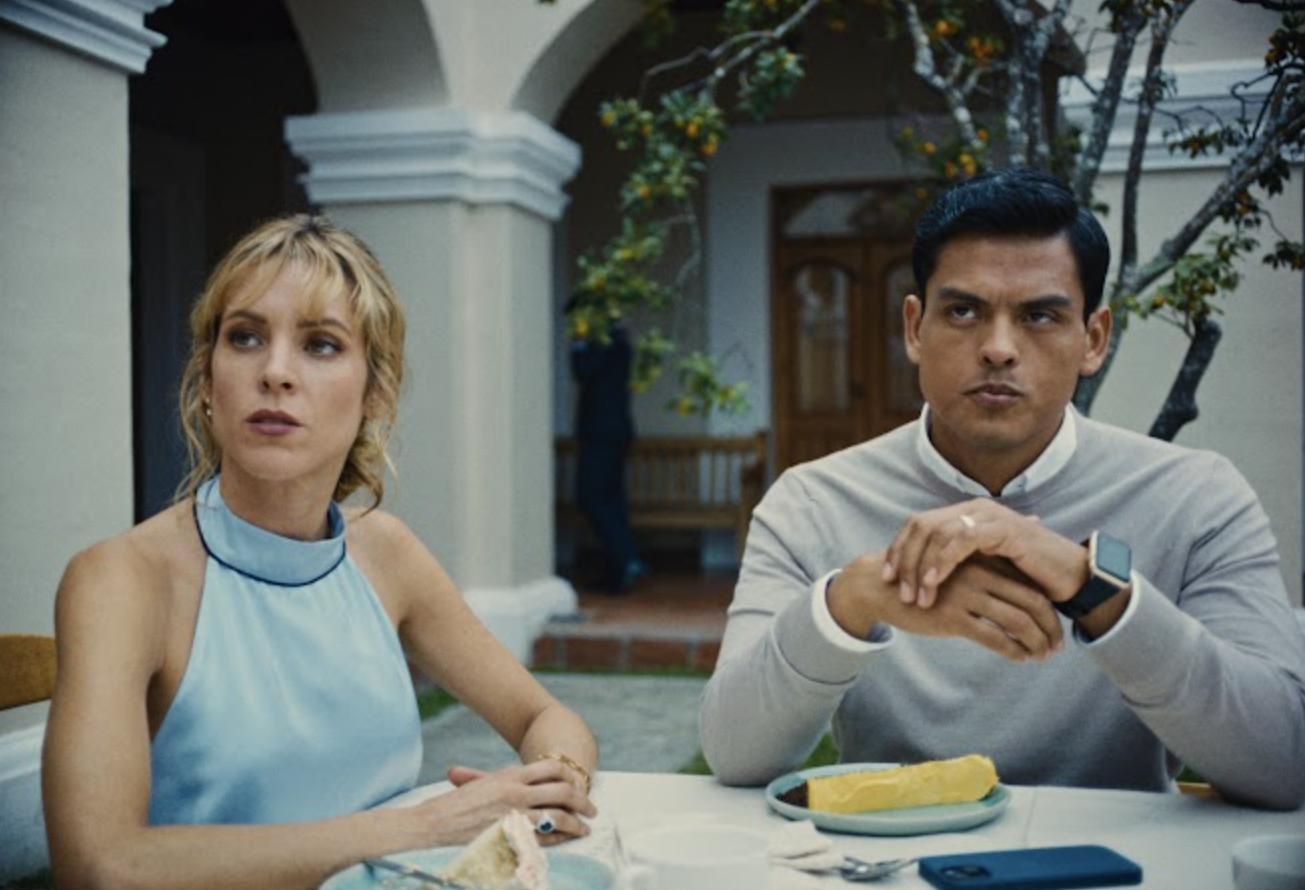
World Premiere
We met Andrés Clariond in Tallinn, where he arrived for the interview with a broad smile, fresh from his film’s sold-out screening at the festival and an audience reception inversely proportional to the Estonian cold. The screening of Versaillesmarked its world premiere, and the director confessed his unease beforehand about presenting it to a Baltic audience: “I was nervous because there was a lot of expectation, since it’s a film that touches on universal themes but also has very Mexican elements, and coming to such a distant country, with such an unfamiliar culture… who knows how they would react. And on top of that, we screened it in the main hall, completely full, sold out. But the reactions were very good. It’s a comedy that provokes uncomfortable laughter. It’s not a laugh-out-loud film, but there was a lot of uncomfortable laughter, a lot of interest; people stayed for a long time for the Q&A. According to the moderator, he had never seen the audience react so much — that’s an excellent sign.”
Politics and Society
Clariond has written all his films, although in Versailles he worked for the first time with a co-writer (Alo Valenzuela). In his previous works, the director had already allowed some of the themes explored here to surface. For example, in the award-winning Hilda (2014), he offered a study of the relationship between maids and their employers, and he confirms it himself: “Growing up in Mexico, the subject of social classes always caught my attention, especially coming from a privileged life and seeing that from childhood. I grew up in a very conservative society, I went to a Catholic school. This very right-wing worldview always shocked me and left me with a strong desire to be transgressive and to mock all of it. In a Catholic school there are many things you cannot say, and they were extremely right-wing, even worse. So I always had this urge to break limits, and that translates into my filmmaking.”
The world of politics is not unfamiliar to the Mexican director, as he is also an editorial columnist for Reforma. “I’ve spent many years analyzing politicians, writing about politics, and I was interested in talking about that period when they are no longer in power, which I find very compelling. Because if I put myself in their shoes and imagine that for so many years they receive an almost royal treatment — surrounded by flatterers, everything solved for them, living like a king — then returning to a normal life must be incredibly hard. And I wanted to explore that; it was my curiosity.”
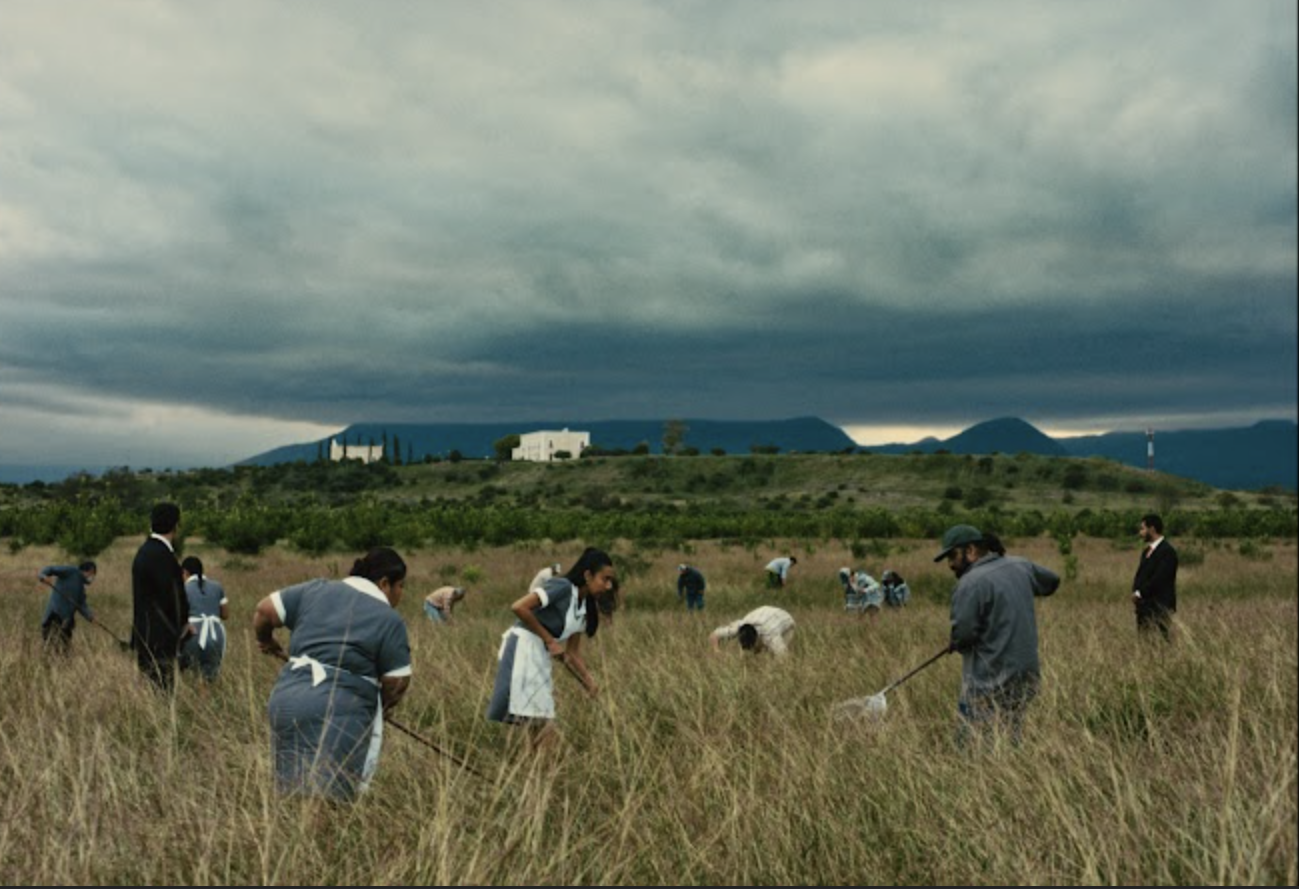
The excesses to which the protagonist ultimately surrenders suggest that a lack of empathy, ambition, and a capacity for hypocrisy must be embedded in the DNA of a professional politician. “Without generalizing, since I know people who genuinely try to do good in politics, I would say that yes, it’s an environment prone to that kind of vice. I think power distorts people, and that human need for applause and recognition never disappears. We have all of that here, which is why I believe anyone can identify with the film — even if it deals with political themes, it speaks about very universal issues.”
Satire and Dark Humor
Clariond employs satire with surreal undertones, but also draws heavily on symbolism — the most obvious being the crown, which reminds us that we all want the same thing, and that we only need the opportunity to behave in ways we believe we never would. “It was entirely deliberate — the temptation of power,” he confirms. “Here it’s taken to an extreme. But yes, I do think we don’t really know how we would react in that situation.” In the scene where Chema shows off his new royal accessory, we witness two contrasting reactions: the visiting mayor feels the urge to crown himself, while the politician’s assistant hesitates at the door but, without being asked, bows. It couldn’t be more illustrative: you are either aspirational or servile. In a republican country like Mexico, the scene is even more telling: “And mind you, we don’t have the display of power or direct experience with royalty. But there is this aura surrounding public figures and politicians. On one hand they are hated, and on the other they are admired for being powerful, and in many cases wealthy. Right now, in my state we have a very young couple in government, obsessed with social media, and he posts shirtless workout videos every day. And they’re very popular — but not because of their policies, rather because they’re attractive, wealthy, and famous.”
That veneration usually lasts only until the inevitable fall from grace: “Yes, exactly. There are many people who secretly wish to be in that position; they would behave just like the politician they criticize. Once they got there, they would do the same.” But the ending of Versailles is far more realistic than a march to the guillotine: “In Mexico, every day there are scandals — corruption, millions stolen — and the next day everything moves on, no one says anything, nothing happens.”
The symbols used by the screenwriters transport us to the realm of the subconscious, to the fusion of religion and state, to the ancestral need to venerate relics, but they also represent the impossibility of communication — the maddening solitude at the top. “The rabbit Chema adopts takes us back to still life painting, to the era of castles and royalty, but above all it was a device that allowed him to open up to someone, so we could get to know him a bit more. Because he is such a hermetic character, and since he doesn’t communicate within his relationship, we needed something like that. And we came up with the idea that it was like a baby. And when he tells her, ‘well, he’s like your child,’ she replies, ‘no, the rabbit is not going to be my child.’”
Delusion and Realism
Clariond portrays the frustrated politician’s fantasies without restraint — but did he impose any limits on himself? “Well, I go all in. I enjoy it a lot, and I also enjoy being politically incorrect, because you know nowadays you have to be very careful with that. And I just let myself go. What I do like, however, is to set up realistic scenarios that gradually fall apart and drift into the absurd. Because what I really don’t want is for someone to watch the film and say it’s pure fantasy; rather, I want them to watch it and think, this could happen — it’s insane, but it could happen.”

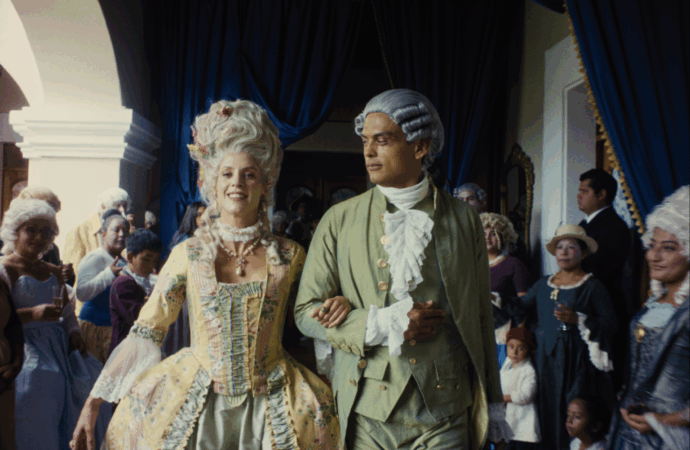

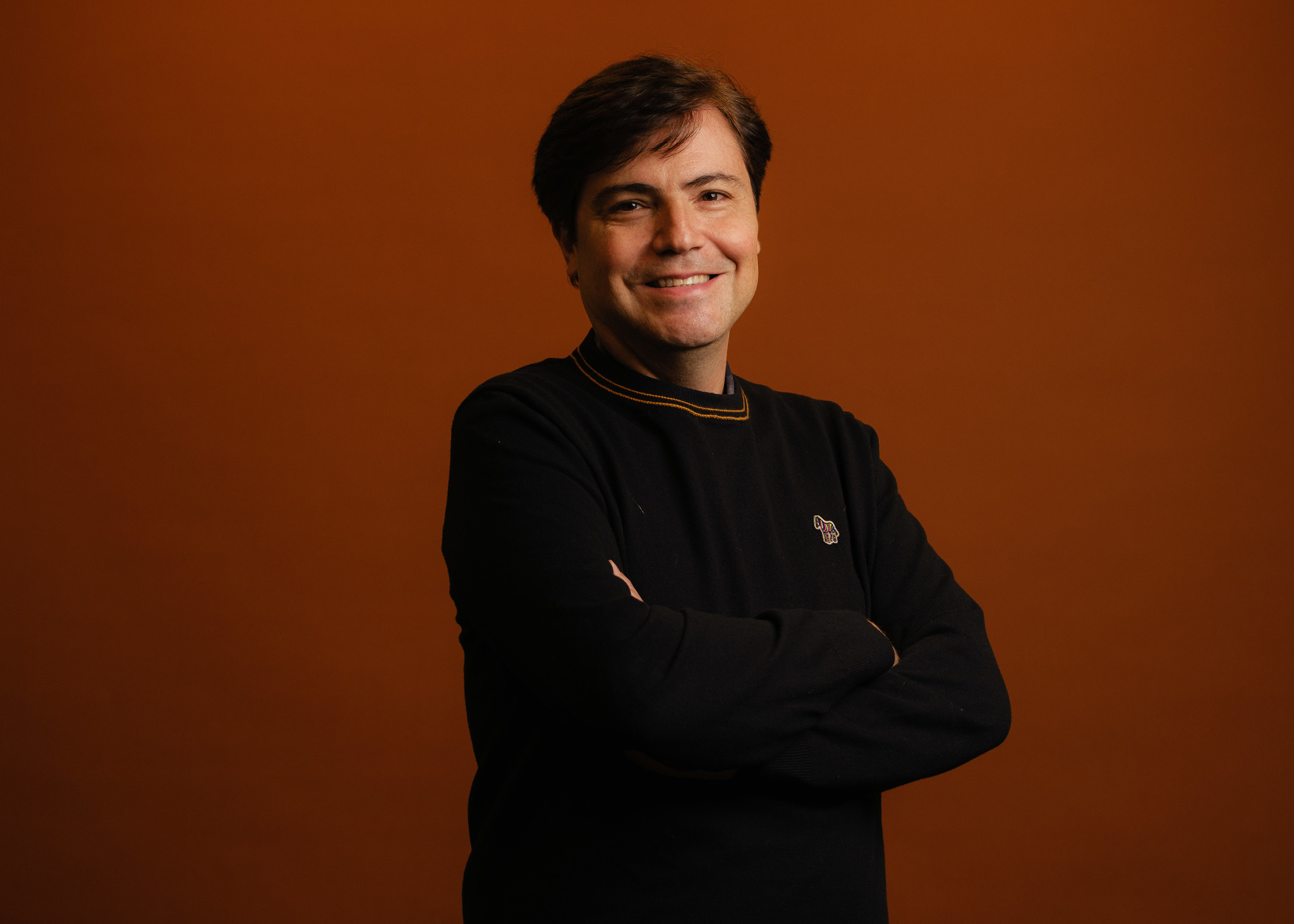




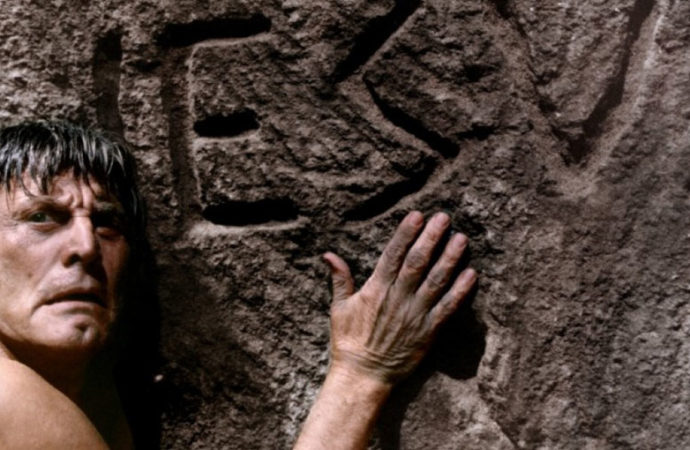
No one has posted any comments yet. Be the first person!